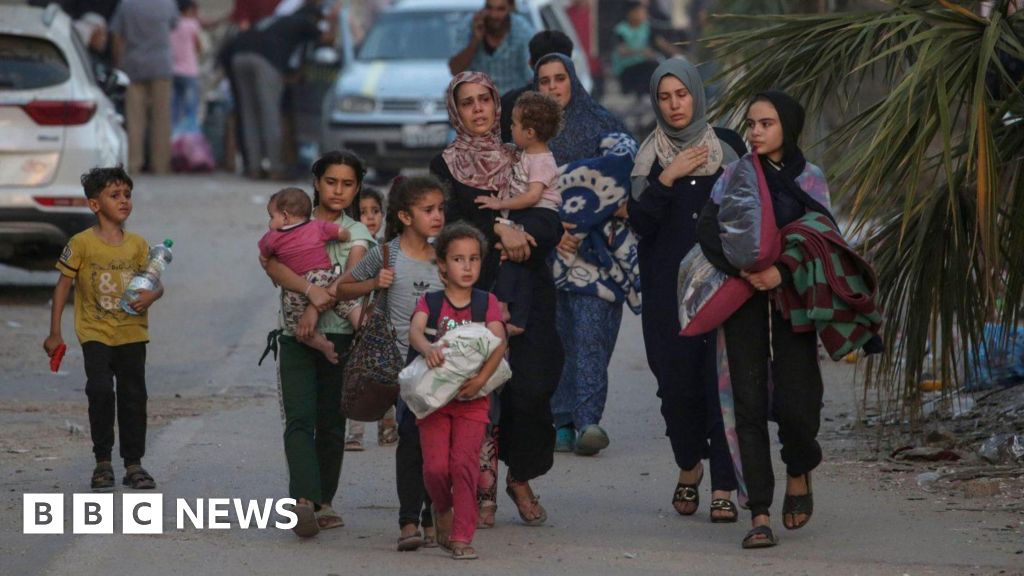Israel’s ambassador to the United Nations said the United Nations last year put the Israeli military on a list of criminals who failed to protect children.
Gilad Erdan said he had been informed of the decision on Friday, which he called “shameful”. Foreign Minister Israel Katz said this would have “an impact on Israel’s relationship with the United Nations”.
A spokesman for the Palestinian president told Reuters the decision was a step closer to holding Israel accountable for its alleged crimes.
Thousands of children have been killed in Israeli operations against Hamas in Gaza, and thousands more are in urgent need of humanitarian aid.
The secretary-general’s annual list covers the killing of children in conflict, the denial of aid and attacks on schools and hospitals. It will be included in a report to the United Nations Security Council next week.
It is unclear what violations the Israeli military is accused of committing.
Reports say Hamas and the Palestinian Islamic Jihad will also be included on the list.
Israeli Prime Minister Benjamin Netanyahu said the United Nations had put him on a “historical blacklist” and that the Israeli army was “the most moral army in the world.”
According to Israel’s National Children’s Committee, Israel launched an offensive after Hamas attacked communities near Gaza on October 7 last year, killing about 1,200 people, including 38 children, and taking 252 hostages, including 42 child.
The health ministry in Hamas-controlled Gaza says Israeli bombings and ground attacks have killed 36,731 people.
Last month, the United Nations said at least 7,797 children had been killed during the war, based on data on identified bodies provided by the Hamas-run health ministry in Gaza.
Also last month, the United Nations revised down the proportion of reported deaths among women and children from 69% to 52%.
Israel said the cuts showed the United Nations relied on false data from Hamas. The United Nations said it was now relying on data from the Gaza health ministry, which is run by Hamas, rather than the Hamas-run Government Media Office (GMO). Meanwhile, GMO said Israeli attacks have killed more than 15,000 children.
The Associated Press said on Friday that an analysis of Gaza health ministry data found that the proportion of Palestinian women and children killed in the Israel-Hamas war appears to have dropped significantly.
The report quoted experts from the American non-profit research organization CNA as saying that this was related to the weakening intensity of Israeli air strikes.
However, Israeli air strikes on Gaza continue. Air strikes were reported on Thursday morning A school packed with displaced people in central Gaza kills at least 35 people. The United States said it had received reports that 14 children were killed in the strike. Israel has released the names of 17 members of Hamas and the Palestinian Islamic Jihad group it said were killed in air strikes.
After the attack, medical staff from Médecins Sans Frontières (MSF), which supports the nearby Al-Aqsa Martyrs Hospital, described scenes of chaos there. The organization said at least 70 dead people had been brought in in the past 24 hours, along with more than 300 injured, mostly women and children.
Last month, an Israeli missile reportedly burned down a camp for displaced Palestinians near the southern city of Rafah. Killed 45 people, including many children and sparked global outrage. The Israeli military said they did not expect such a fire.
Israel has also been accused of delaying much-needed aid to Gaza and depriving residents of the Palestinian territory of clean water, food, medicine and fuel. It denies the accusation and accuses U.N. agencies and humanitarian organizations of failing to distribute aid that is allowed in.
Fews Net, a US-based famine warning system, said famine was “likely” to occur in northern Gaza in April, while Israel’s military operation in Rafah in southern Gaza was exacerbating food insecurity in the region.
The operation displaced more than a million Palestinians from Rafah, who had sought refuge from fighting elsewhere in Gaza, and to the sandy coastal areas or the city of Khan Younis, which was largely in ruins.
UNRWA, the U.N. agency for Palestinian refugees, said the movement of such large numbers of people in such a short period of time, combined with a sharp drop in aid delivery, was having deadly consequences.
“Children are dying from malnutrition and dehydration,” said UNRWA spokesperson Juliette Touma.

